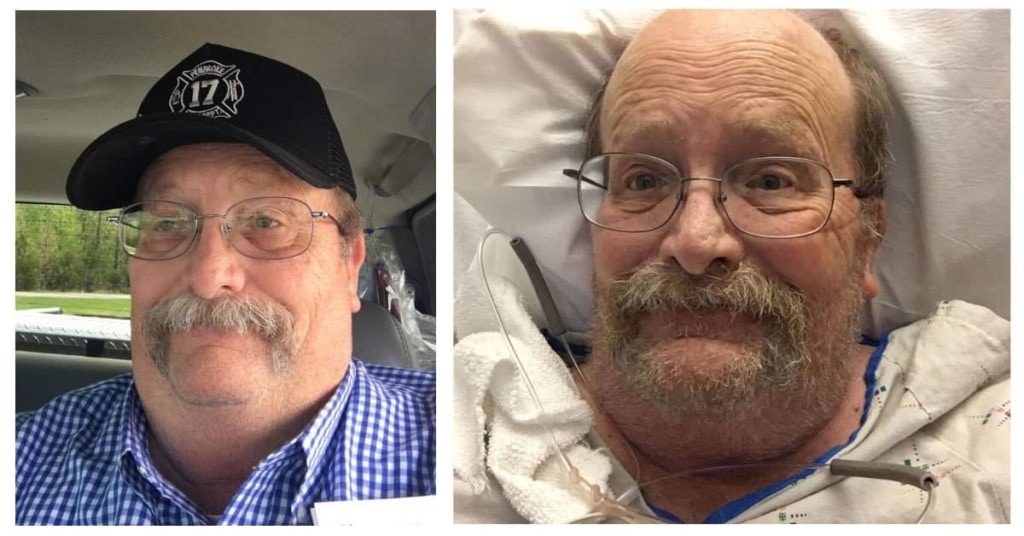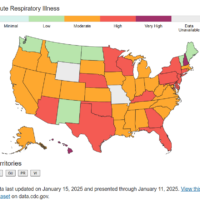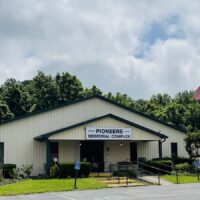When Robert Celing’s wife drove him from their home in Pembroke to Jennie Stuart Medical Center in Hopkinsville on June 21, he knew there was a possibility he had contracted COVID-19. He had a fever hovering around 100 degrees, and he felt too ill to stay home any longer and wait it out.

What Celing didn’t know was how quickly his condition would decline after Tammy Celing handed him over to the hospital. Like others across the country whose loved ones have become infected, she could not stay at the hospital with her husband.
A day after Celing was admitted, a doctor in the intensive-care unit said he needed to be intubated. A mechanical ventilator would take over for his lungs while they treated him for the respiratory disease caused by the novel coronavirus.
For seven days, the ventilator pumped oxygen into Celing’s lungs. The only people he saw were strangers covered in protective gear. He lost track of time. His mind played tricks on him.
“It was like being inside a kaleidoscope,” Celing, a 65-year-old retired firefighter, said in a telephone interview.
Colors swirled around him. He thought he saw fire trucks. Seven days later, someone was trying to wake him.
“It seemed like it was taking forever for them to remove the tube,” he said. “It probably wasn’t that long, but it seemed like it.”
A nurse gave him sponges soaked in water so he could moisten his mouth. They didn’t want him to choke by drinking water too quickly.
Celing’s surroundings started to come back into focus. His doctor said a plasma transfusion from a donor who had recovered from COVID-19 likely saved his life. Plasma is the liquid part of blood. When it is taken from a survivor, it gives a new patient antibodies to fight the virus.
“I had excellent care. Nothing could have been better,” Celing said of Jennie Stuart.
He was discharged on July 2 and went home with a portable oxygen tank. It had been 12 days. In that time, his wife had been tested for COVID-19, learned her result was negative. She spent the days quarantined as she scrubbed and disinfected the house. The place started to smell like Lysol, she later told her husband.
- COVID-19 Data: See the latest coronavirus case numbers & data for Christian County
- RELATED: Chart prepared by doctors assesses the relative risk of various activities
- SUBSCRIBE: Sign up for Hoptown Chronicle’s daily COVID-19 newsletter
That first day back home, it was tough walking up four steps to get inside the house. But Celing said he’s feeling a little better every day. He notices things he might have overlooked before his illness and is taking stock of people who have called and written to check on him.
Sitting on the back porch, he scanned the yard and said to his wife, “Look at how green everything is.”
Neighbors who see him on the porch wave as they drive by. Friends are bringing food to the house. His pastor from Pembroke Baptist dropped off a lemon icebox pie. Several employees of his cardiologist’s practice in Clarksville, Tennessee, sent him a card, and he teared up reading their names.
Celing, a native of northern Illinois, moved to Christian County in 1976 when the U.S. Air Force sent him to Fort Campbell as a firefighter assigned to protect the airfield. He later became a civilian firefighter for Fort Campbell and served the volunteer departments in Oak Grove and Pembroke. He’s lived in Pembroke since 2007.
In late March, Celing was hurt in an accident on U.S. 41A just south of the Tennessee line. His truck ran into the rear of a tractor-trailer, and he was trapped for 40 minutes. He describes the experience to make a point about the seriousness of COVID-19.
“That was a painful experience,” he said, but it was nothing compared to the coronavirus.
He tells people they should take the coronavirus seriously.
“It’s a disease you don’t want to have,” he said.
Celing said several people have asked him if he thinks he contracted COVID-19 from the Amish clients who hire him to drive them in the rural communities around Pembroke.
“I don’t know where I got it,” he said. “Who knows … you can’t point fingers.”
He said he is not aware of anyone who caught the virus from him.
As of Monday, 17,152 people in Kentucky had tested positive for the coronavirus. There have been 593 deaths resulting from COVID-19, according to the state.
Celing said he’ll be wearing a mask when he goes out. He keeps sanitizer handy. He keeps his distance from others. He said he won’t judge others who don’t wear a mask. It is a personal choice, he says. But if he returns to driving members of the Amish community, he will ask them to put on a mask when they are in a vehicle together.
He hopes his experience will help others.
“It’s a hard disease to get over,” he said.
As he recuperates at home, Celing has time to think about how quickly his illness progressed and how fortunate he was to survive.
“We tend to take things for granted,” he said. “Why did I get to live and other people don’t get to live? I don’t know … maybe later in life I will know.”
(Jennifer P. Brown is the editor and founder of Hoptown Chronicle. Reach her at editor@hoptownchronicle.org.)
Jennifer P. Brown is co-founder, publisher and editor of Hoptown Chronicle. You can reach her at editor@hoptownchronicle.org. Brown was a reporter and editor at the Kentucky New Era, where she worked for 30 years. She is a co-chair of the national advisory board to the Institute for Rural Journalism and Community Issues, governing board past president for the Kentucky Historical Society, and co-founder of the Kentucky Open Government Coalition. She serves on the Hopkinsville History Foundation's board.





